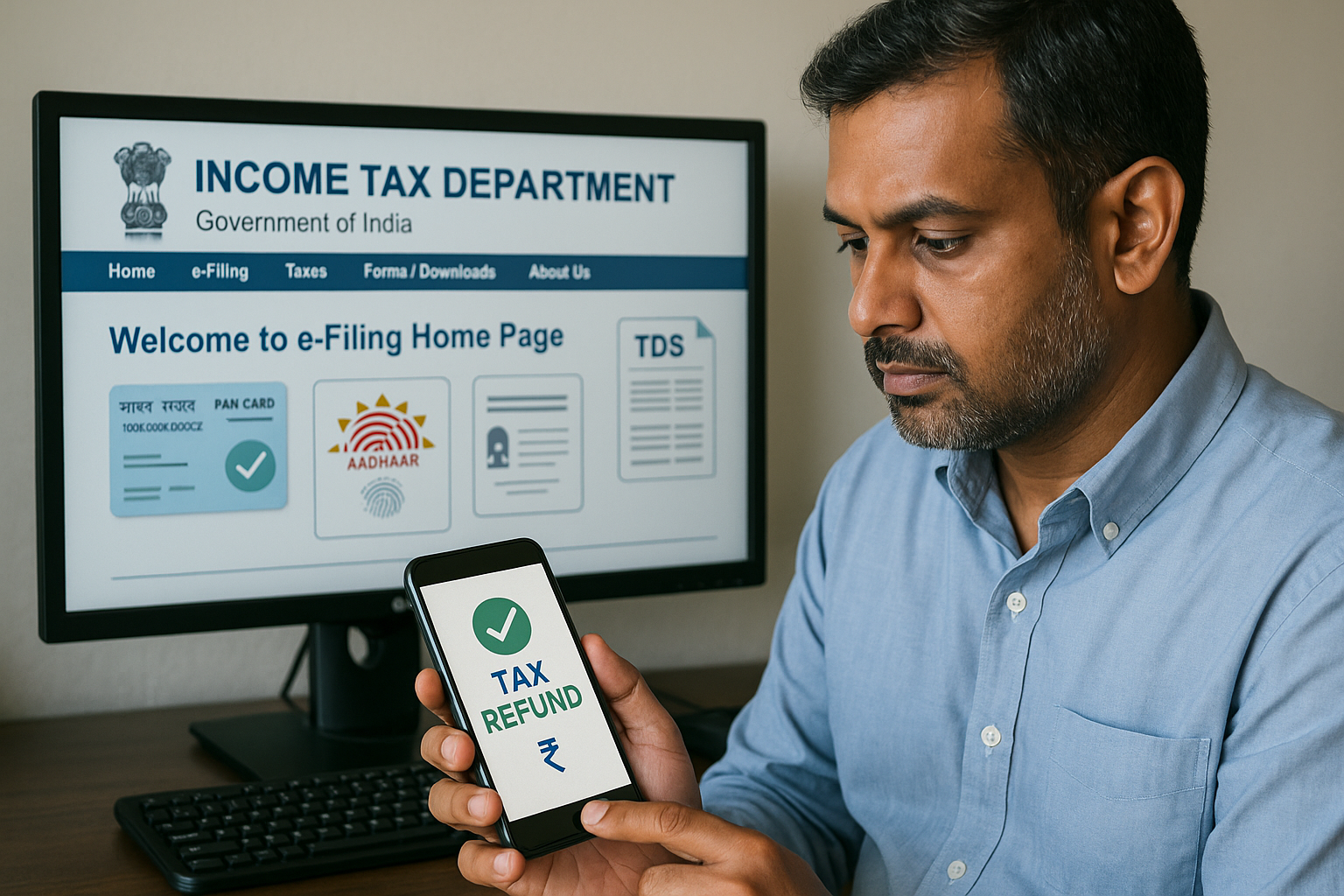In a significant move aimed at reducing taxpayer grievances and ensuring faster refunds, the draft Income Tax Bill 2025 proposes a simplified process for claiming TDS (Tax Deducted at Source) refunds. The move is part of the broader initiative by the government to make tax compliance smoother and align the system with global best practices.
Background
The Central Board of Direct Taxes (CBDT) and the Ministry of Finance are currently overhauling the 60-year-old Income Tax Act, with a new, streamlined framework expected to be introduced in the Monsoon Session of Parliament. One of the major pain points for individual taxpayers and small businesses has been delays in refund processing due to mismatches in TDS claims, PAN-Aadhaar issues, and the complexity of Form 26AS.
Under the proposed changes, the new system will:
Allow auto-verification of TDS data through real-time integrations with deductors,
Enable faster refund processing through intelligent algorithms,
Introduce a standardised time frame for crediting TDS refunds post filing.
Proposed Changes to TDS Refund Process
The new provisions aim to ensure:
Automatic reconciliation of TDS with Form 26AS or Annual Information Statement (AIS),
Timely processing of refunds within a defined period post return submission,
A more centralized processing approach using faceless systems via CPC (Centralized Processing Centre) model,
Greater transparency on the refund status via revamped income tax portal interfaces.
This is expected to minimize the need for follow-ups, rectification filings, and grievance redressals currently clogging the tax administration ecosystem.
Expert Views
CA Manoj Kumar Singh, Direct Tax Practitioner, comments:
“The proposed overhaul of TDS refunds is a welcome relief. If implemented well, it could resolve nearly 30-40% of complaints filed by salaried taxpayers annually, especially those involving minor mismatches and delayed credit.”
Preeti Nair, Director at a mid-sized tax consultancy, adds:
“Making the TDS refund mechanism data-driven and faceless aligns with the government’s ‘Digital India’ and ‘Ease of Doing Business’ goals. This should benefit both individuals and MSMEs.”
Taxpayer Impact & Systemic Benefits
Salaried employees, pensioners, and small business owners—who often face TDS refund delays—will see reduced waiting periods.
Refunds could now reflect within weeks rather than months, depending on the quality of TDS data furnished by the deductor.
The move is expected to decongest the appellate and grievance redressal systems, allowing tax officers to focus on high-value cases and compliance audits.
Looking Ahead
The Income Tax Bill 2025 is likely to be introduced in Parliament by the end of July 2025, followed by stakeholder consultations. If passed, the new refund rules may come into effect from April 1, 2026, giving taxpayers ample time to adapt to the new digital compliance landscape.
This step reflects a broader narrative—shifting from enforcement to facilitation—within India’s tax governance structure.












